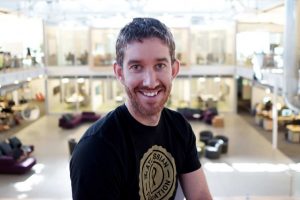When Atlassian co-founders Scott Farquhar and Mike Cannon-Brookes began building their company in 2002, their aim was to earn the same modest salary as an average Australian accounting graduate—roughly $48,000 at the time. They bootstrapped their company into a young-but-emerging market and released Jira and Confluence, two of the most popular and user-friendly workplace programs on the market. Nearly 20 years later, the two entrepreneurs are Australia’s first tech billionaires, joining the ranks of Mark Zuckerberg, Drew Houston, and other American counterparts.
For Farquhar, it’s a far cry from his working-class childhood in Sydney—a childhood including an out-of-date, second-hand computer—while his partner Cannon-Brookes enjoyed a more affluent upbringing. In addition to their tremendous success, the two long-time friends are also notorious for their neighboring estates, once owned by competing newspaper magnates. Now, while Cannon-Brookes uses his free time to support his new NBA team (the Utah Jazz, co-owned with fellow tech entrepreneurs Ryan Smith and Ryan Sweeney), Farquhar has side projects that keep him close to the industry that made him.
Along with Salesforce CEO Marc Benioff and others, in 2014 Farquhar launched Pledge 1%, a corporate philanthropic campaign encouraging early-stage companies to dedicate a fraction of their assets to charity. The list of companies that have joined the Pledge is long and filled with aspiring startups from around the world. In addition to the small portion Farquhar’s company dedicates to Pledge 1%, an equal amount goes toward The Atlassian Foundation, an organization that donates equity to education-focused charities, employee volunteer time, and free products for non-profits.
Farquhar is also a co-founder of Skip Capital with his wife Kim Jackson, who runs the equity firm’s operations and investment strategy. Jackson, a former investment banker and rock musician, has made significant investments into several high-growth technology enterprises, focusing on female-led and founded ventures. With Jackson at the helm, Farquhar can take a mentorship role with ventures of interest, and the couple collaborates to uplift unique projects.
The success of Atlassian has rewarded the young entrepreneur and philanthropist with a fortune of $14 billion, including a boon from the thousands of new customers creating virtual workplaces while the coronavirus pandemic forces big changes. He can also brag about his company’s award-winning corporate culture and grade-A employee perks, a living example of “practice what you preach.” By now, Farquhar could kick back and take a break, living far more lavishly that he once did, but he understands that radical corporate transformation doesn’t operate on autopilot.
























